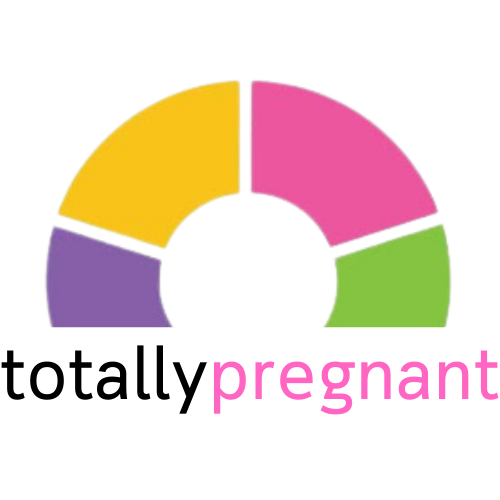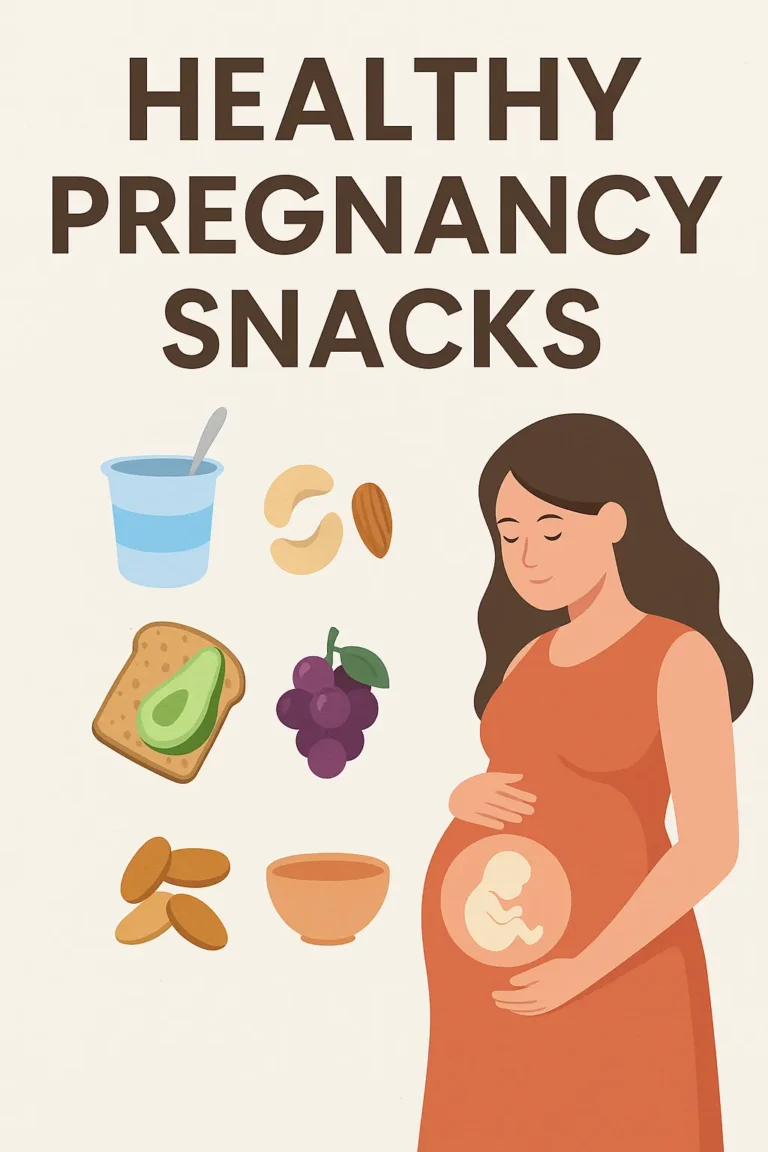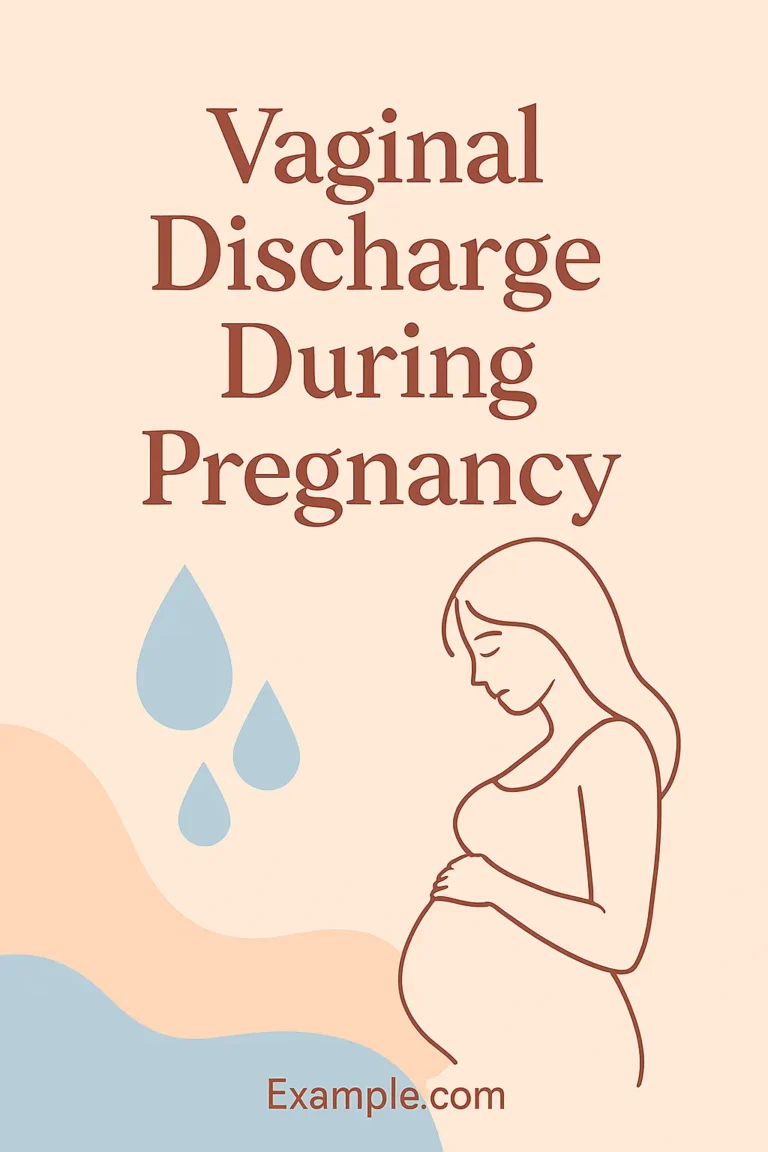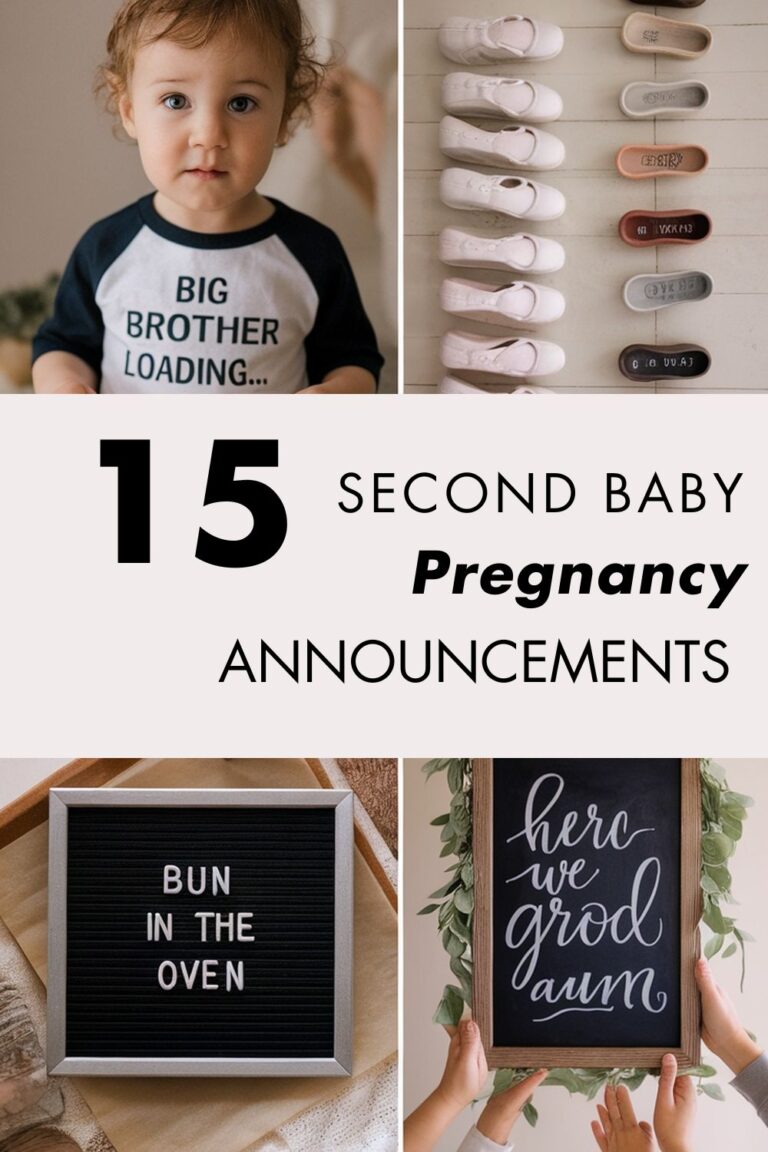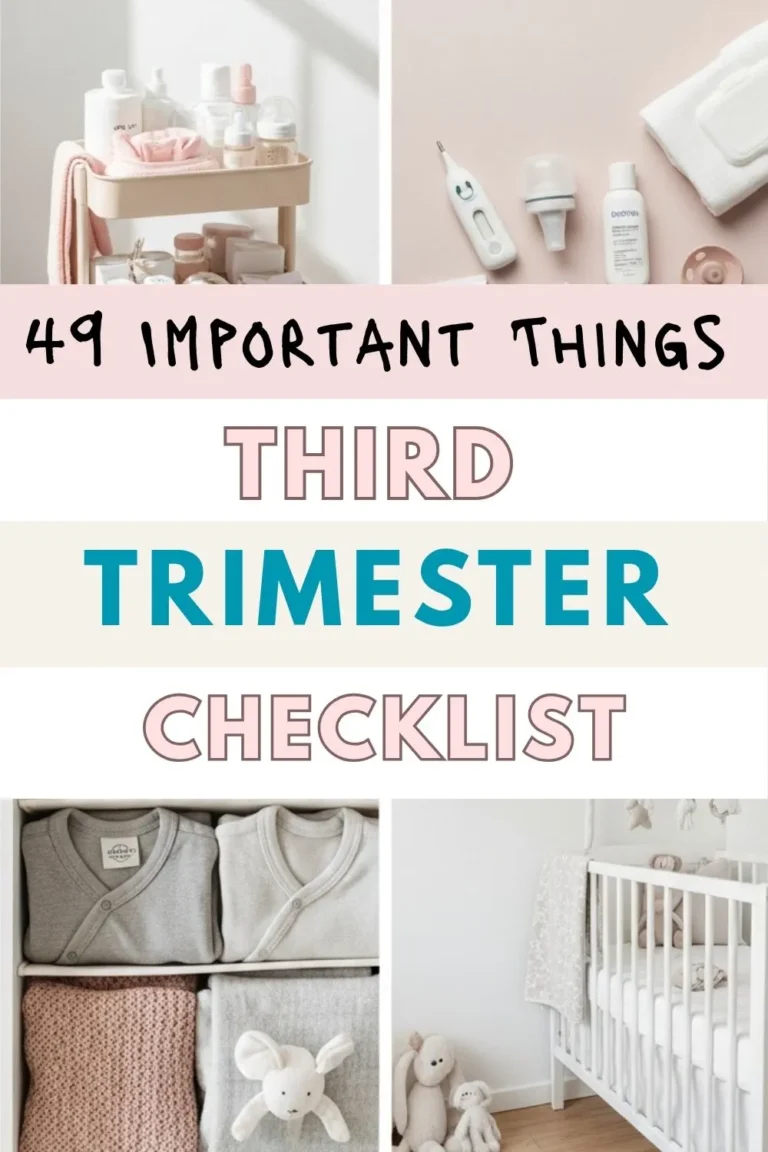Vitamins, Minerals and Supplements in Pregnancy
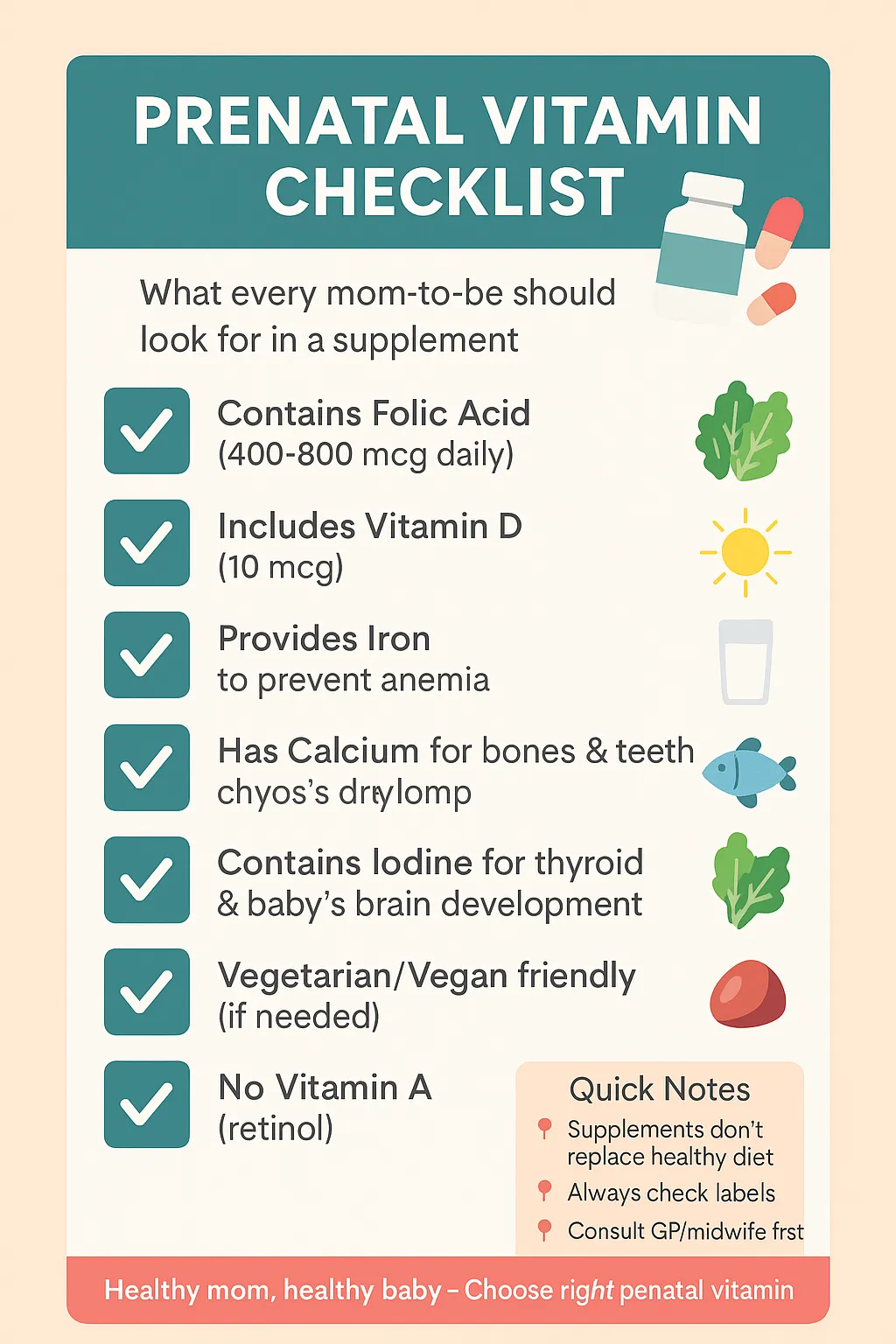
Eating a healthy, varied diet during pregnancy will give you most of the vitamins and minerals your body needs. But if you are pregnant, or planning to be, it is also important to take a folic acid supplement.
It is recommended that you take:
- 400 micrograms of folic acid every day from before you get pregnant until you are 12 weeks pregnant
This helps reduce the risk of problems in your baby’s early development.
A daily vitamin D supplement is also advised.
Do not take cod liver oil or any supplements that contain vitamin A (retinol) while pregnant, as too much vitamin A can be harmful for your baby. Always check supplement labels.
You should also know which foods to avoid during pregnancy.
Where to Get Pregnancy Supplements
You can buy supplements from pharmacies or supermarkets, or your GP may be able to prescribe them.
If you choose a multivitamin, make sure it does not contain vitamin A (retinol).
You may be eligible for free vitamins through the Healthy Start scheme.
Folic Acid Before and During Pregnancy
Take a 400 microgram folic acid tablet every day from before pregnancy until you are 12 weeks along.
Folic acid helps prevent neural tube defects such as spina bifida.
If you did not start folic acid before conceiving, begin as soon as you find out you are pregnant.
Include foods rich in folate (the natural form of folic acid), such as green leafy vegetables, as well as fortified cereals and spreads. But it is difficult to get the recommended amount through diet alone, so supplements are needed.
Higher Dose Folic Acid
Some women are advised to take a higher dose of folic acid (5 milligrams daily) until 12 weeks of pregnancy.
You may be advised to take the higher dose if:
- You or your baby’s biological father have a neural tube defect
- There is a family history of neural tube defects
- A previous pregnancy was affected by a neural tube defect
- You have diabetes
- You take anti-epilepsy medicine
- You take anti-retroviral medicine for HIV
If any of these apply to you, see your GP. They can prescribe the higher dose and may recommend extra screening during pregnancy.
Vitamin D in Pregnancy
You need 10 micrograms of vitamin D every day. Pregnant and breastfeeding women are advised to take a daily supplement with this amount between September and March.
Vitamin D helps regulate calcium and phosphate, which are needed to keep bones, teeth, and muscles healthy.
Our bodies make vitamin D when skin is exposed to sunlight from late March to the end of September. But from September to March, sunlight is not enough, so supplements are needed.
Vitamin D is also found in some foods, including:
- Oily fish such as salmon, mackerel, herring, and sardines (limit to 2 portions a week in pregnancy)
- Egg yolks
- Red meat
- Fortified foods such as some cereals and fat spreads
- Liver (but avoid eating liver in pregnancy)
Because only a small number of foods contain vitamin D, it is difficult to get enough without supplements.
Do not take more than 100 micrograms (4,000 IU) of vitamin D a day, as high amounts could be harmful.
You may be able to get free vitamin D supplements if you qualify for the Healthy Start scheme.
Iron in Pregnancy
If you do not get enough iron, you may feel very tired and could develop anaemia.
Iron is found in:
- Lean meat
- Green leafy vegetables
- Dried fruit
- Nuts
If you want to include peanuts or foods containing peanuts, such as peanut butter, you can do so as part of a balanced diet unless you have an allergy or your health professional advises against it.
Many breakfast cereals are fortified with iron. If your blood test shows low iron levels, your GP or midwife will recommend iron supplements.
Vitamin C in Pregnancy
Vitamin C helps protect cells and keeps them healthy.
You can get vitamin C from many fruits and vegetables. Good sources include:
- Oranges and orange juice
- Strawberries
- Blackcurrants
- Red and green peppers
- Broccoli
- Brussels sprouts
- Potatoes
A balanced diet should provide all the vitamin C you need during pregnancy.
Calcium in Pregnancy
Calcium is important for building your baby’s bones and teeth.
Sources of calcium include:
- Milk, cheese, and yoghurt
- Green leafy vegetables such as kale, watercress, or rocket
- Tofu
- Soya drinks with added calcium
- Bread and foods made with fortified flour
- Fish with edible bones such as sardines and pilchards
Vegetarian, Vegan and Special Diets in Pregnancy
A well-planned vegetarian diet can give you and your baby the nutrients you need during pregnancy. But it may be harder to get enough iron and vitamin B12.
If you are vegan, or if you follow a restricted diet due to an allergy, intolerance such as coeliac disease, or for religious reasons, it is best to speak with a GP or midwife. You may be referred to a dietitian for advice on meeting all your nutritional needs during pregnancy.
Healthy Start Vitamins
The Healthy Start scheme may help if you are pregnant or have a child under four and receive certain benefits, or if you are pregnant and under 18.
If you are eligible, you will be sent a Healthy Start card that can be used to buy specific foods such as milk, infant formula, fruit, and vegetables. You can also use the card to get free vitamins.
